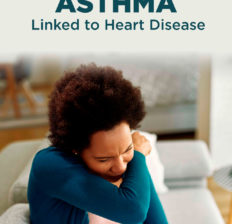This Dr. Axe content is medically reviewed or fact checked to ensure factually accurate information.
With strict editorial sourcing guidelines, we only link to academic research institutions, reputable media sites and, when research is available, medically peer-reviewed studies. Note that the numbers in parentheses (1, 2, etc.) are clickable links to these studies.
The information in our articles is NOT intended to replace a one-on-one relationship with a qualified health care professional and is not intended as medical advice.
This article is based on scientific evidence, written by experts and fact checked by our trained editorial staff. Note that the numbers in parentheses (1, 2, etc.) are clickable links to medically peer-reviewed studies.
Our team includes licensed nutritionists and dietitians, certified health education specialists, as well as certified strength and conditioning specialists, personal trainers and corrective exercise specialists. Our team aims to be not only thorough with its research, but also objective and unbiased.
The information in our articles is NOT intended to replace a one-on-one relationship with a qualified health care professional and is not intended as medical advice.
Allergies, Asthma Linked to Heart Disease
May 31, 2022

New research released this spring is nothing to sneeze at: Allergies and asthma are linked to heart disease, although the exact cause of the connection isn’t definitive. In fact, it could be a combination of factors.
News of this finding is far-reaching and could impact a large portion of the population. In America, 25 million Americans are currently living with asthma, according to the U.S. Centers for Disease Control and Prevention (CDC). That’s one in 12 people — nearly 8 percent of the population.
Allergies are even more widespread: More than 50 million Americans currently suffer from allergies, including hay fever, skin and food allergies.
Study Findings: Allergies, Asthma Linked to Heart Disease
The study, published in Nature Cardiovascular Research, included about 10,000 adults with at least one allergic disorder. This included asthma, along with respiratory, digestive and skin allergies.
Researchers mined the data from the National Health Interview Survey, a well-known cross-sectional survey of the U.S. population.
Here are some of the key findings:
- Having an allergic disorder was linked to a higher risk of developing high blood pressure and coronary heart disease.
- The risk of high blood pressure was most pronounced in people ages 18 to 57; higher coronary heart disease was most common in those 39 to 57, particularly in Black men.
- While allergies did increase the risk, asthma was a more potent predictor of high blood pressure and heart disease.
While more research is needed, the study authors cautioned, some public health experts believe the findings warrant keeping a closer eye on heart health in people dealing with allergies and asthma.
“For patients with allergic disorders, routine evaluation of blood pressure and routine examination for coronary heart disease should be given by clinicians to ensure early treatments are given to those with hypertension or coronary heart disease,” lead study author Yang Guo, Ph.D., of the Institute of Dermatology at Peking University Shenzhen Hospital, said in a statement.
How to Manage Allergies, Asthma
Allergies and asthma may affect the cardiovascular system in different ways. For instance, previous research published in 2020 found asthma increases a person’s risk of developing atrial fibrillation, a risk factor for stroke.
Although inflammation was thought to be the initial culprit, that didn’t necessarily play out in the research, leading the research team to say, “There may be specific unique patterns of inflammation not identified or even other non-inflammatory pathways that may be driving an increased risk.”
Some of the medications used for asthma and allergies could also impact heart disease risk. Those containing pseudoephedrine or similar ingredients can increase blood pressure and heart rate, which could be particularly harmful for people with heart disease.
People with or at risk for heart disease should consult with a health care provider if taking anti-histamine allergy drugs, since some can have cardiac-related side effects.
If you’re someone dealing with allergy and/or asthma symptoms, there are complementary ways to help bring relief, in addition to your medicine.
Home remedies for asthma and allergies includes things like:
- Eating a diet rich in colorful fruits and vegetables
- Making sure cruciferous vegetables like Brussels sprouts and broccoli are part of your meals
- Getting enough fatty acids rich in omega-3s
- Eating foods rich in vitamin B5, like shiitake mushrooms and avocados
- Avoiding processed foods as much as possible
- Doing the elimination diet to find out your food triggers
- Avoiding fragranced products, including things like scented air fresheners, cleaning products perfumes, colognes, candles and laundry detergents
How to Protect Your Heart
The dietary recommendations above will also benefit your heart, and while focusing on your diet and movement can go a long way to improving your heart health, you should focus on your connections with others, as well.
Even loneliness can impact your heart in negative ways, so consider becoming part of a social circle that cooks healthy meals together, a community garden, or a neighborhood group that goes for walks or wheelchair outings for increased social stimulation, healthier meals and more exercise.
Conclusion
- A new study supplied more evidence to the idea that allergies and asthma can increase a person’s risk of cardiovascular disease.
- If you take allergy medicine and are dealing allergies and/or asthma, you may want to ask for additional heart monitoring.
- There are many ways to reduce asthma and allergy symptoms, including eating healthier, finding allergy triggers and avoiding fragranced products, among others.




